- Home
- Robert B. Parker
Double Play Page 2
Double Play Read online
Page 2
I learned something of triumph when the Dodgers won the National League pennant in 1941. I did not know who won in 1940. I learned years later that it was Cincinnati. I did not know any players in 1940. By the time I was nine, in September of 1941, the names of the Dodgers marched through my mind like lyrics: Dolph Camelli, Billy Herman, Pee Wee Reese, Cookie Lavagetto, Ducky Medwick, Pete Reiser, Dixie Walker, Mickey Owen. The pitchers: Higbe and Wyatt and Hugh Casey. And I learned something about tragedy in the World Series when Mickey Owen missed the third strike on Tommy Henrich to give the Yankees another chance to win, which they did. I regret it still.
Listening to the scores—Pittsburgh 4, Chicago 2; Cleveland 8, Detroit 1—I felt connected to all the great cities I’d never seen, across the vast rolling reaches of the Republic, connecting me with them and the people there watching the games. I saw them. I smelled the steamy heat in their streets. Philadelphia, Washington, Cincinnati.
In that last summer before the war, listening to the radio while my father wore his bear pants and worked in the yard, it was as if I learned the shaman incantations of a magic sect. The sound of the bat, amplified by the crowd mike. The call of the vendors, the organ playing, the sound of the fans yelling things you could never quite make out. The effortless and certain cadences of the play-by-play announcers, all of it became like the sound of a mother’s heartbeat to her unborn child, the rhythm of life and certainty. The sound of permanence.
When my father was through working he’d have a beer, Ballantine as I recall, and he’d pour some in a shot glass and say to me, “Want a drink, Bob?”
It was, for me, the potion of initiation. Women didn’t drink beer and listen to ball games on summer afternoons, and they didn’t wear bear pants.
2.
FOR MORE THAN a month he was too weak to do anything except sit in a chair near the window and look at what was happening on the street. He had some mustering-out pay left, and several times a week a home worker from the VA came around and brought him some groceries. Most of them went unused. He couldn’t eat. It wasn’t even that food repelled him. He simply didn’t want it and couldn’t force himself to eat it. He drank a little soup most days. And sometimes a half a slice of toast. The home worker brought him books and magazines but he didn’t have the energy to read. He listened to the radio. He slept part of the day. Nights were difficult. The visiting nurse came once a week. The scars on his stomach and chest were still bright, but there was no infection. He hadn’t smoked since he was wounded. He couldn’t stand to drink coffee. On her third weekly visit the nurse took him for a walk to the corner of his block and back. He walked like an elderly man, his shoulders forward, taking small shuffling steps, shivering. The weather was mild, and he was bundled up, but he was cold. He stopped at the corner, and turned and looked back at the insurmountable distance back down his block.
“You can make it,” the nurse said.
She was a fat young woman with long black hair and an Irish face. Her name was Madeline Murphy.
“It’ll get easier as time goes by,” she said. “Once your blood count gets back up.”
Burke nodded. They began to slowly walk back.
“So, what are your plans?” Madeline said. “After you get back on your feet.”
Burke shook his head.
“You don’t know?” Madeline said. “Or you won’t tell?”
“Don’t know,” Burke said.
“Well, what are you trained for?” Madeline said.
It seemed to Burke that they were no closer to his place than they had been. He glanced over at Madeline and smiled a little.
“Rifleman,” he said.
PENTIMENTO
Carole was helpful, he remembered, but not managerial. He was tentative. She was patient. He hurried. She patted him gently.
“Just let it happen,” she murmured, “people know how to do this at birth, just let it happen.”
He could feel himself loosen, feel the rhythm of it, feel himself expand and intensify, feel his existence narrow to her face, just below him, her eyes very wide.
“Let it come, Marine,” she murmured, “let everything come.”
It was his first time. He didn’t last long. As he ejaculated he hugged her so hard she could barely breathe.
“Everything,” she murmured, “everything.”
He began to cry, gasping for breath as the sobs racked him, his body shaking. Eventually he slowed, and finally he lay still against her, his face against her naked breast. He cried softly. She kept her arms around him and patted.
“It’s all right,” she said. “I’m here. You’re here with me. It’s all right.”
“Can I stay with you?” he said.
“Of course,” she said and patted him some more. “Of course.”
He kept his head against her. She smelled of soap and perfume, and something else, something female and alive. Like her bare legs, he would always remember how she smelled.
They were quiet like that, lying in her bed, in the small apartment, on the second floor, with the air stirring through the open window enough to stir the curtains.
“I feel funny about crying,” he said.
“No need.”
“Men shouldn’t cry.”
“Of course they should,” she said. “They cry all the time.”
“You’re the first woman . . .”
“I know,” she said. “It’s been all men, and high places, and not being afraid. No softness. No love.”
“My father loved me,” Burke said.
“Not like a woman,” she said.
“No,” he said. “Not like that.”
“With a woman you needn’t pretend,” she said. “You can be whatever you are.”
“I guess so,” Burke said. “Can we have intercourse again?”
“Of course,” she said. “Of course we can.”
Bobby
I actually turned nine in September of 1941.
In the early winter of that year, my father picked me up at the movies in our 1939 Plymouth. On the ride home he told me that the Japanese had bombed Pearl Harbor, and we were at war. He was quite formal about it, “the Japanese” he said. Thereafter for the next four years they would be Japs.
I was thrilled. Ever since the war started in Europe, I had yearned for us to have one. The interior light above the front windshield of the Plymouth had a corrugated surface on its half-moon shape and from then on, it looked to me exactly like the ammunition belt for a machine gun. I spent hours of imaginary dogfights in the Plymouth, manning the dome light, until after the war, when we could, we traded the Plymouth for a ’46 Ford.
The war was wonderful fun. We painted the top halves of our headlights to preserve blackout rules. On our coast, oil slicks from sunken tankers washed up on the beaches. It was thrilling to think that there might be a U-boat looking at you through a periscope right at that moment. We were alert for them whenever we were near the ocean. Coastguardsmen with side arms patrolled our beaches, on the lookout for saboteurs, attracting the attention of young women in bathing suits.
During blackouts, my uncle Paul, the drunk, in his white air raid warden’s helmet, was assigned to direct automobiles at a darkened intersection. He usually created a great angry traffic jam. We collected paper for the war, and collected fat in coffee cans. I won a MacArthur medal for collecting so many newspapers. I was years into adulthood before I lost track of it. Most of the ballplayers went to the war. The St. Louis Browns had a one-armed outfielder named Pete Grey.
We studied posters published by Coca-Cola, as I remember, in which the profile of every warplane was presented so that we could spot them at once and know which was ours and which belonged to the Japs or the Krauts. P-40s with the tiger shark nose design that the Flying Tigers used in China. P-41s. P-38s where the cabin was between a double fuselage that stretched back from two engines to twin tails. The unstylish Jap Zeros. The Nazi planes: Messerschmitts, the Stuka dive-bombers with the ugly fixed wheels. The RAF
Spitfire. The Navy Corsair. Our planes were always the best-looking. For the first time in my life there were planes overhead often. There were blimps on submarine patrol along the coast, the B-17s and B-24s from Westover Field. The unglamorous transports which one didn’t bother to learn the names of. They came low and very loud and everyone would stop and look up. I always hoped it would be an exciting enemy plane, but it never was.
My father was too old to be drafted, but he would receive a commission in the signal corps if he volunteered. My mother put her foot down, as she often did. “You have a wife and son to take care of,” she said while her foot was down. So my father didn’t volunteer. The son he had to take care of was aghast and perfectly puzzled. I never blamed him. I blamed my mother.
My cousin Dave was in the Navy in the Pacific. We had his picture on the drop leaf maple table in the living room. Dark blue uniform, white sailor hat on the back of his head, big grin. He had worked out a code with his father to let us know approximately where he was, and when we would go to my uncle John’s house he would have Dave’s positions marked with colored pins on a big wall map taped up in the kitchen. The names were operatic: Wake Island, Midway, Guam, Tulagi, Guadalcanal, Bougainville, Tarawa, Kwajalein, Truk, Saipan. Jungle and vast blue sea, and tracer bullets in the night and the sound of fighter planes in the sky. My soul spun out across the angry planet like the web from a spider.
Everything was rationed: gasoline, tires, bacon, butter. We used margarine instead. It came lard white with a dye pack included. I used to mix the orange-yellow dye into the recalcitrant margarine until it looked sort of like butter. I never questioned this contribution to the war effort, and felt soldierly doing it. Families with men in the war hung small square flags in the window with a star in the center of the flag, sometimes more than one star. The star colors told you the status of the warrior. A gold star meant that the warrior was dead, and the Gold Star Mother became one of the enduring icons of my childhood.
At the movies we saw Bataan, Flying Tigers, Guadalcanal Diary, Thirty Seconds over Tokyo, Wake Island. The Japs were unremittingly wrong. We were brave. Even the misfits learned before the end of the movie that the war had to be won. All of the bomber crews and rifle squads were a melting pot of American ethnicity, Murphy, Martinelli, Shapiro, Swenson and DeLisle. On screen the war was fought by Spencer Tracy and Cary Grant, John Garfield, John Wayne, Robert Mitchum, Humphrey Bogart, Robert Taylor. Of course we would win. Every week at the movies we watched the newsreels which tended to treat the war as an unswerving march by our side toward victory in Europe and the Pacific. No one doubted. There would be no conditions. We required unconditional surrender. Remember Pearl Harbor as we march against the foe. . . . Praise the Lord and pass the ammunition, praise the Lord we ain’t a goin’ fishing. . . . We’re comin’ in on a wing and a prayer. . . .
At Mass we said prayers for our boys. . . . Bob Hope went and entertained our boys. . . . The Stage Door Canteen welcomed our boys. . . . The USO brought comfort to our boys. The Red Cross, too. . . . Tokyo Rose urged our boys not to die in vain. How could she do that?
My parents were Republicans and even during the war spoke ill of Roosevelt among their friends. How could they do that? We had some sort of intellectual grasp of the fact that Roosevelt was paralyzed. But it was only that, the knowledge of a meaningless fact, like being aware that calculus exists. Our Roosevelt moved as easily as Churchill. He was never publicly crippled.
There was gasoline rationing and all cars had a sticker designation for how much they could buy a week. We were I think a C sticker. There were ration books. Spike Jones recorded a song called “Der Fuehrer’s Face,” whose lyrics included a forceful Bronx cheer. As the war progressed some of our boys began to return, still jaundiced from tropical fevers, limping from bullet wounds, wearing slings, using canes, deaf in one ear from artillery concussion. They were celebrities, twenty missions over Berlin, veterans of Anzio and Guadalcanal, North Africa and Kwajalein, Italy and France, people who’d fought and killed and seen men die at Iwo Jima and Omaha Beach. They were more important than movie stars or ballplayers. I wished that I could have been one of them. I would have happily suffered what they suffered to have become what they became. If only I was old enough. I never thought about dying in the war. I’d have returned maybe with a wonderful sling, and would shake my head quietly when people asked me about it.
3.
HIS BLOOD COUNT was finally normal. He did a hundred pushups and a hundred situps and a hundred pullups every day. He ran a hard two miles every day. He had lost fifty pounds after he got shot and he appeared to have no muscle at all. But his weight was back up to 190 pounds now. He had done high ironwork before the war and it had given him a lot of muscle density and the density persisted, dormant, until he got well enough to exercise.
By himself, he went to the Paramount Theater and watched The Best Years of Our Lives on a Wednesday afternoon. Then he went home and made himself a scotch and seltzer and sat in the chair by the window that looked out onto the street and lit a Lucky Strike and sipped the scotch. He looked at the white package of Luckies. Lucky Strike Green has gone to war. He smiled to himself with no amusement. Didn’t we all.
They hadn’t lived here long. The furniture had come with the apartment. She had done nothing to personalize it. There were no pictures. He went to the kitchen and made himself a salami sandwich and brought it back in and ate it and drank scotch and looked out the window some more.
There were more cars on the street than when he’d first got out of the hospital and sat staring all day out this window. Gas rationing had ended. There were new models for the first time since the war began. A thick-bodied, black and tan German shepherd dog trotted past the window, alone, going somewhere. Women walked past, some of them good-looking. Burke watched them go. Again, alone in the darkening room, he smiled slightly. For more than a year he had been focused on not dying. Now here he was eating, drinking scotch, smoking a Lucky, looking at girls. He glanced around the small, nondescript, uneventful apartment.
He said aloud, “I gotta get out of here.”
PENTIMENTO
In the two weeks he spent with her, he remembered, he became adroit. I can always thank her for that, he thought. Marines taught me to shoot. She taught me to fuck. She had always encouraged him, never criticized, never judged.
“You can talk about anything,” she said, “my little Mr. Marine. You don’t have to be tough here.”
When she went to work he would stay at the apartment. She seemed able to set her own schedule at her job, and usually went late in the morning and came home early in the afternoon. He had learned very young to feed himself, and now he bought groceries and made supper. They would eat together in the little kitchen. She would light a candle.
In bed she made him feel heroic. She twisted with pleasure. She cried out with it, calling him “my dearest boy, my dearest boy.” He had never felt that way before, or since. He’d been tough early, and he’d been brave enough when he had to be; but only in her bed, listening to her gasp with the pleasure of him, had he ever felt heroic. He was a man. He would take care of her, all his life he would take care of her. The memory was harsh. But he couldn’t leave it alone. His memory kept going back to it, replaying it, feeling the hot, erotic pain of it. A fucking man, he thought. Mr. Fucking Marine Man.
Three days before his leave was over, in the darkness, enveloped in her heat and smell, he pressed her hard and told her he loved her.
“I know,” she whispered.
“I know,” he said, “we haven’t known each other very long.”
“Time doesn’t matter,” she whispered.
“I have to go, day after tomorrow,” he said.
“Shhh.”
“I don’t know if I’ll come back.”
“You’ll come back,” she said.
“Maybe, maybe not,” he said.
“I’ll wait for you,” she said.
“Would you marry me before I go?
”
It was out. He heard the question linger. A tangible thing, suspended in the dark.
“Of course, little Mr. Marine,” she said finally. “Of course I will.”
4.
HE PACKED SOME clothes and his .45, and took all of the mustering-out money he hadn’t spent and walked out of the apartment leaving the door unlocked and the key on the hall table. He had been in the Marines for a while with a guy named Anthony Mastrangelo, whose older brother was a bookie. After he left his apartment he went to see him. They had drinks in the North End in a bar named Spag’s.
“You’re a strong guy,” Anthony had said. “How ’bout you be a fighter. My brother Angelo could fix you up with some easy fights.”
“How easy?”
“Easy enough to win,” Anthony had said.
“These guys going in the tank?”
“Sure.”
“And?”
“And we build you a rep,” Anthony said.
“And?”
“And we get you couple big money fights, and maybe me and Angelo bet some side money and . . .” Anthony made a waffling gesture with his right hand.
They were drinking I.W. Harper on the rocks.
“What makes you think I can do it?”
“In the Corps,” Anthony said, “I seen you kick the crap out of a couple guys. That big Polack from Scranton, what was his name?”

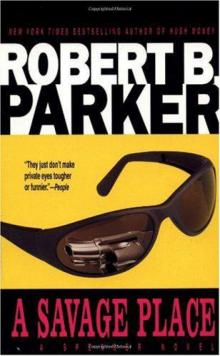 A Savage Place s-8
A Savage Place s-8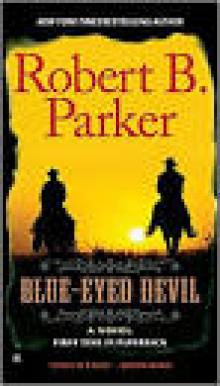 Appaloosa / Resolution / Brimstone / Blue-Eyed Devil
Appaloosa / Resolution / Brimstone / Blue-Eyed Devil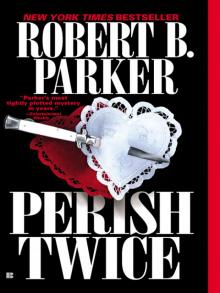 Perish Twice
Perish Twice Spare Change
Spare Change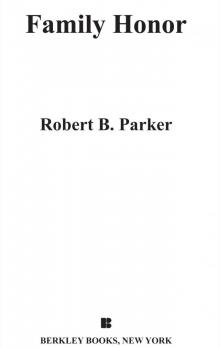 Family Honor
Family Honor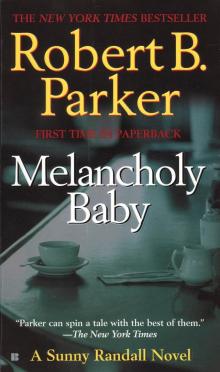 Melancholy Baby
Melancholy Baby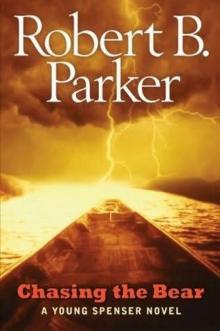 Chasing the Bear
Chasing the Bear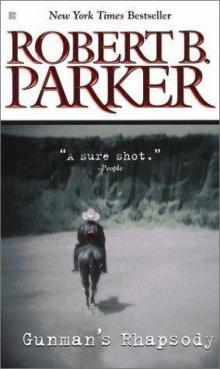 Gunman's Rhapsody
Gunman's Rhapsody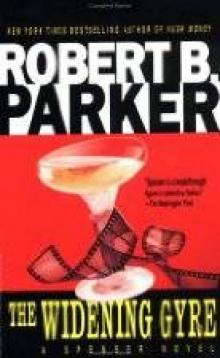 The Widening Gyre
The Widening Gyre Thin Air
Thin Air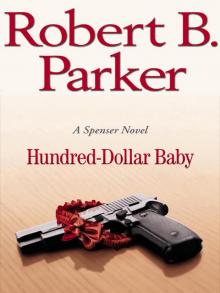 Hundred-Dollar Baby
Hundred-Dollar Baby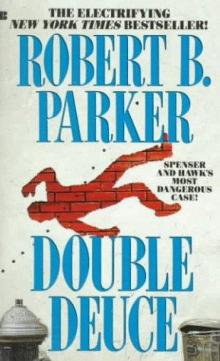 Double Deuce s-19
Double Deuce s-19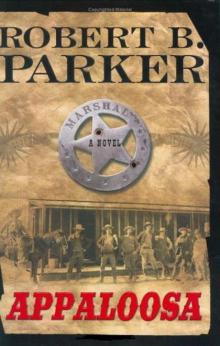 Appaloosa vcaeh-1
Appaloosa vcaeh-1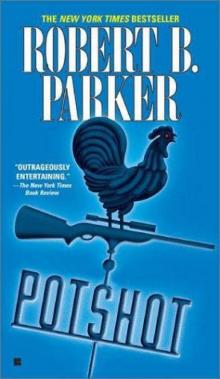 Potshot
Potshot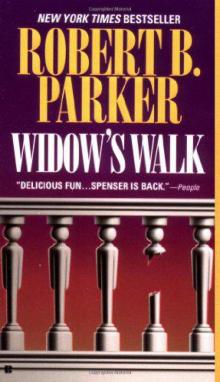 Widow’s Walk s-29
Widow’s Walk s-29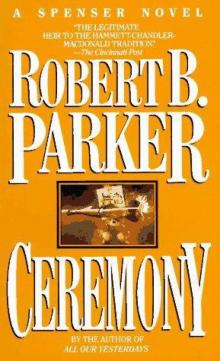 Ceremony s-9
Ceremony s-9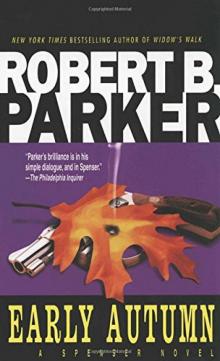 Early Autumn
Early Autumn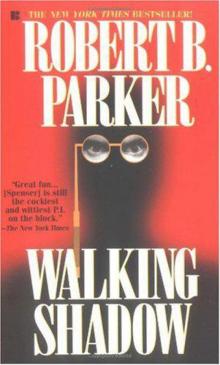 Walking Shadow s-21
Walking Shadow s-21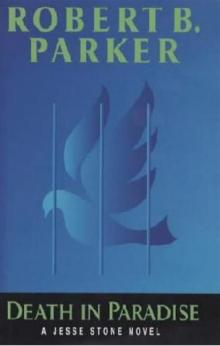 Death In Paradise js-3
Death In Paradise js-3 Shrink Rap
Shrink Rap Blue-Eyed Devil
Blue-Eyed Devil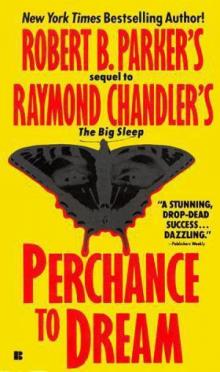 Perchance to Dream
Perchance to Dream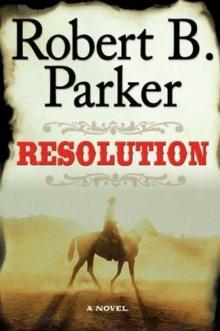 Resolution vcaeh-2
Resolution vcaeh-2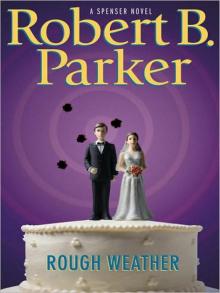 Rough Weather
Rough Weather The Jesse Stone Novels 6-9
The Jesse Stone Novels 6-9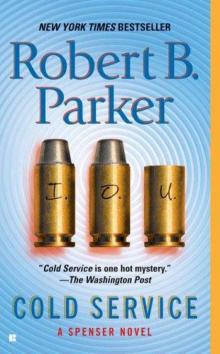 Cold Service s-32
Cold Service s-32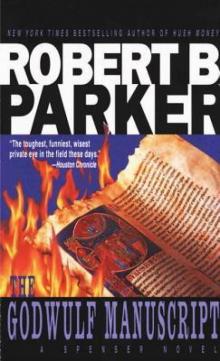 The Godwulf Manuscript
The Godwulf Manuscript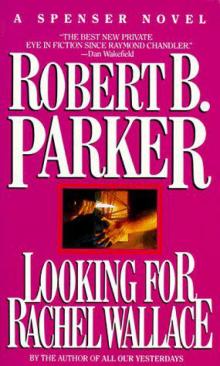 Looking for Rachel Wallace s-6
Looking for Rachel Wallace s-6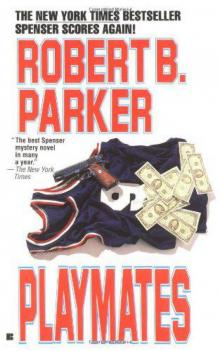 Playmates s-16
Playmates s-16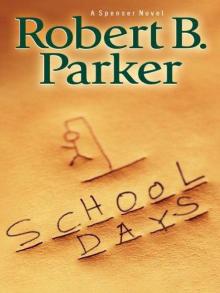 School Days s-33
School Days s-33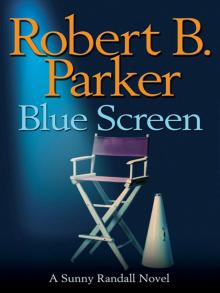 Blue Screen
Blue Screen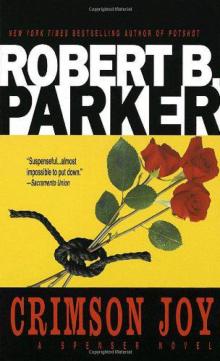 Crimson Joy
Crimson Joy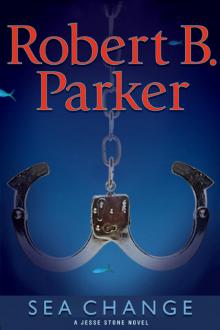 Sea Change js-5
Sea Change js-5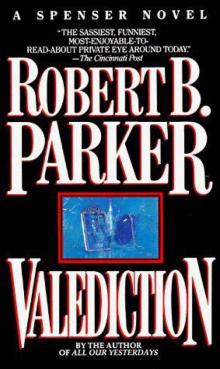 Valediction s-11
Valediction s-11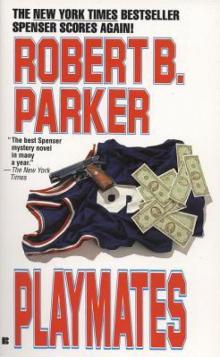 Playmates
Playmates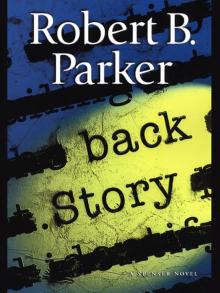 Back Story
Back Story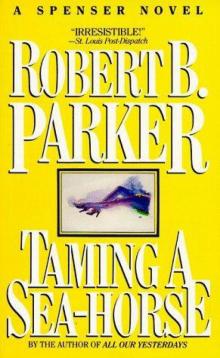 Taming a Sea Horse
Taming a Sea Horse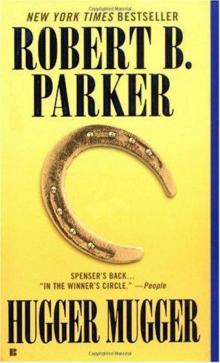 Hugger Mugger
Hugger Mugger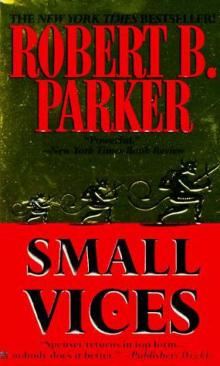 Small Vices s-24
Small Vices s-24 Silent Night: A Spenser Holiday Novel
Silent Night: A Spenser Holiday Novel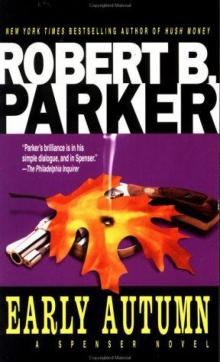 Early Autumn s-7
Early Autumn s-7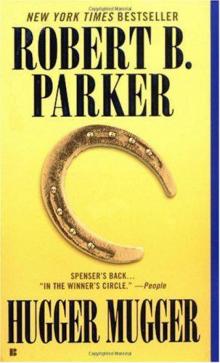 Hugger Mugger s-27
Hugger Mugger s-27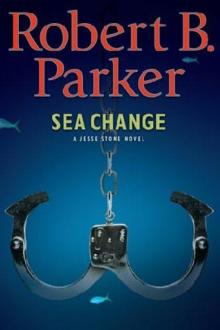 (5/10) Sea Change
(5/10) Sea Change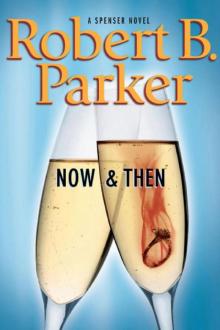 Now and Then
Now and Then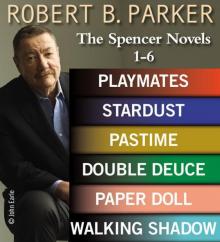 Robert B. Parker: The Spencer Novels 1?6
Robert B. Parker: The Spencer Novels 1?6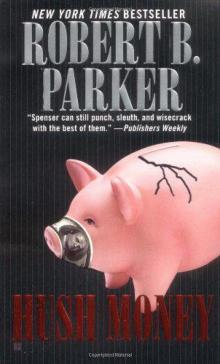 Hush Money s-26
Hush Money s-26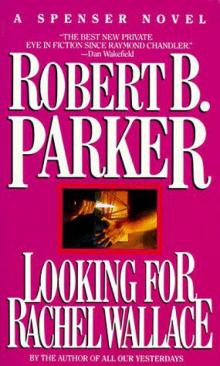 Looking for Rachel Wallace
Looking for Rachel Wallace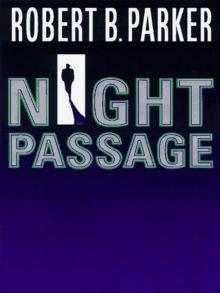 Night Passage
Night Passage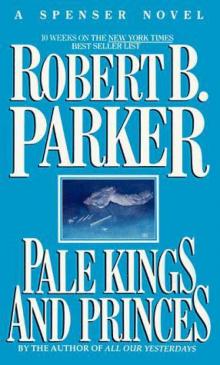 Pale Kings and Princes
Pale Kings and Princes All Our Yesterdays
All Our Yesterdays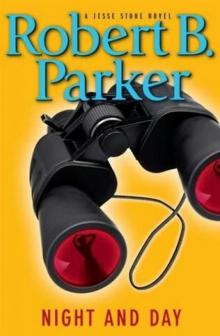 Night and Day js-8
Night and Day js-8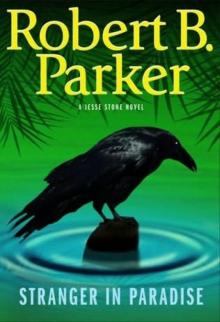 Stranger in Paradise js-7
Stranger in Paradise js-7 Double Play
Double Play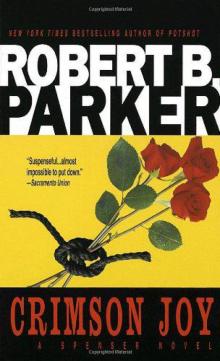 Crimson Joy s-15
Crimson Joy s-15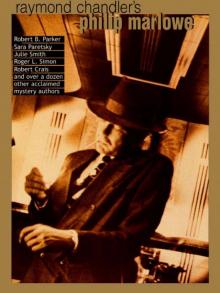 Raymond Chandler's Philip Marlowe
Raymond Chandler's Philip Marlowe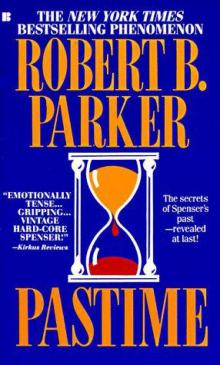 Pastime
Pastime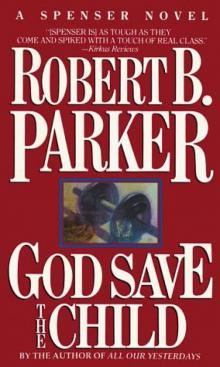 God Save the Child s-2
God Save the Child s-2 Bad Business
Bad Business Trouble in Paradise js-2
Trouble in Paradise js-2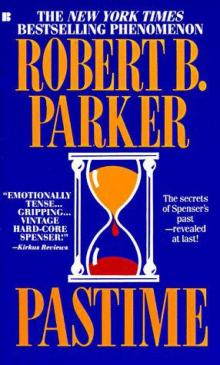 Pastime s-18
Pastime s-18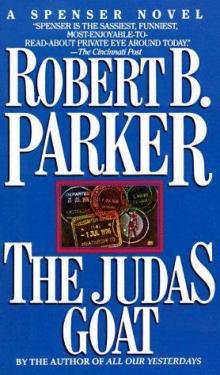 The Judas Goat s-5
The Judas Goat s-5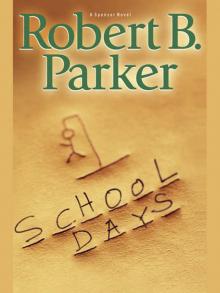 School Days
School Days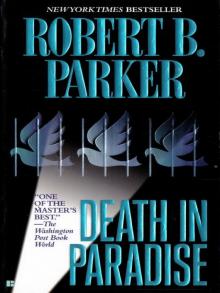 Death In Paradise
Death In Paradise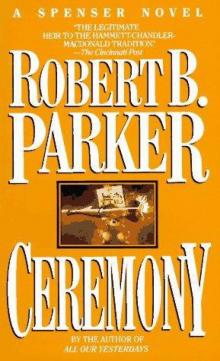 Ceremony
Ceremony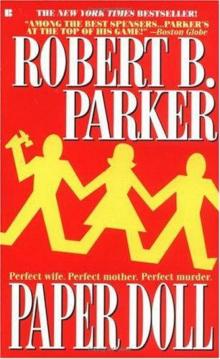 Paper Doll s-20
Paper Doll s-20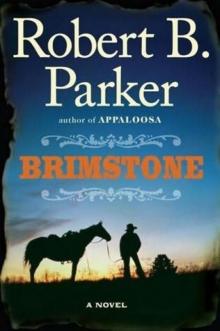 Brimstone vcaeh-3
Brimstone vcaeh-3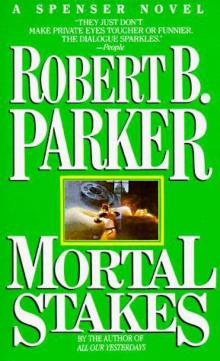 Mortal Stakes s-3
Mortal Stakes s-3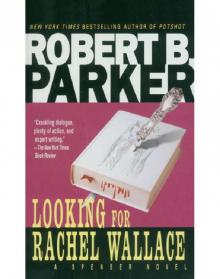 Spencer 06 - Looking for Rachel Wallace
Spencer 06 - Looking for Rachel Wallace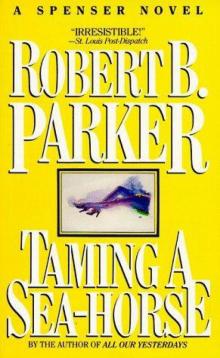 Taming a Sea Horse s-13
Taming a Sea Horse s-13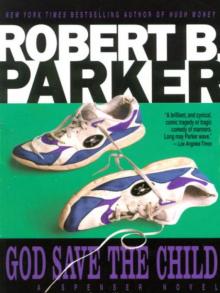 God Save the Child
God Save the Child Chance
Chance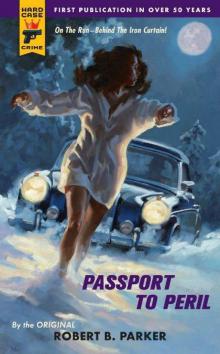 Passport To Peril hcc-57
Passport To Peril hcc-57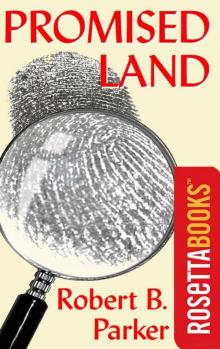 Promised Land
Promised Land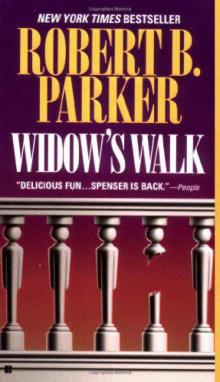 Widow’s Walk
Widow’s Walk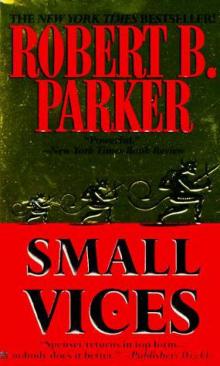 Small Vices
Small Vices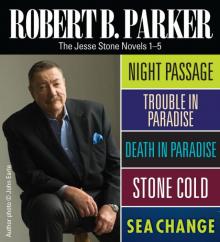 Robert B Parker: The Jesse Stone Novels 1-5
Robert B Parker: The Jesse Stone Novels 1-5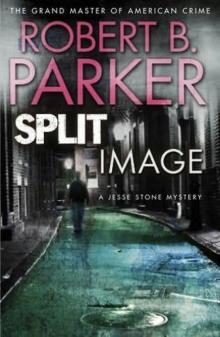 Split Image js-9
Split Image js-9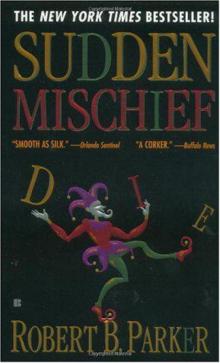 Sudden Mischief s-25
Sudden Mischief s-25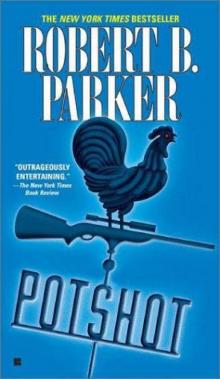 Potshot s-28
Potshot s-28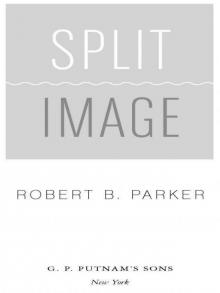 Split Image
Split Image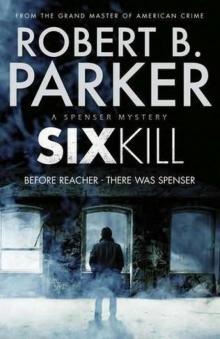 Sixkill s-40
Sixkill s-40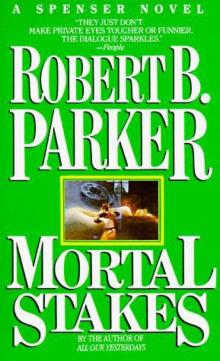 Mortal Stakes
Mortal Stakes Stardust
Stardust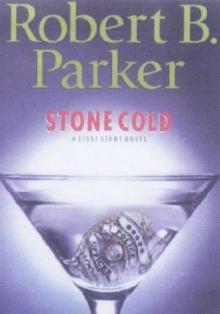 Stone Cold js-4
Stone Cold js-4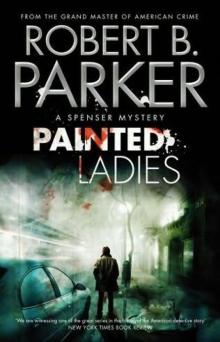 Painted Ladies s-39
Painted Ladies s-39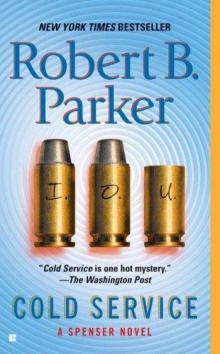 Cold Service
Cold Service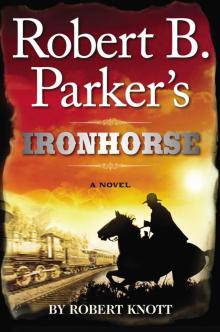 Ironhorse
Ironhorse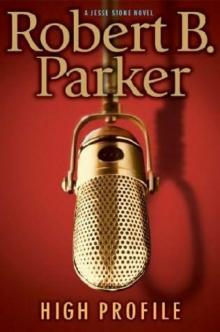 High Profile js-6
High Profile js-6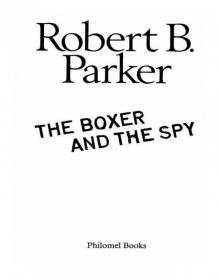 The Boxer and the Spy
The Boxer and the Spy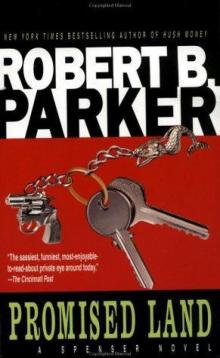 Promised Land s-4
Promised Land s-4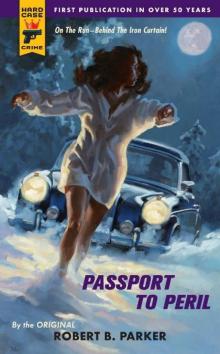 Passport to Peril (Hard Case Crime (Mass Market Paperback))
Passport to Peril (Hard Case Crime (Mass Market Paperback))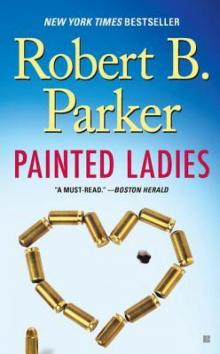 Painted Ladies
Painted Ladies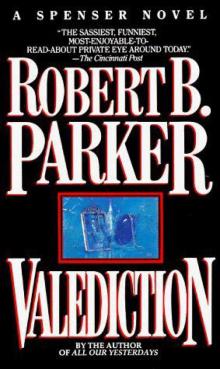 Valediction
Valediction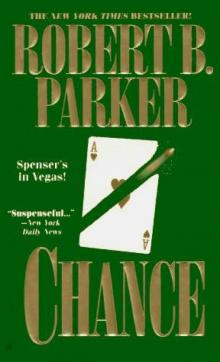 Chance s-23
Chance s-23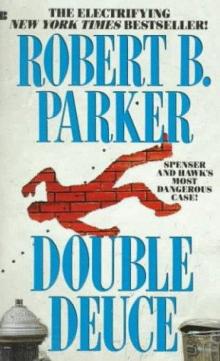 Double Deuce
Double Deuce Wilderness
Wilderness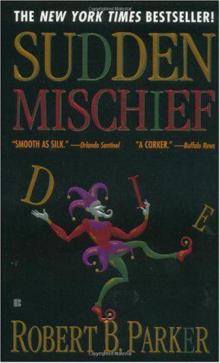 Sudden Mischief
Sudden Mischief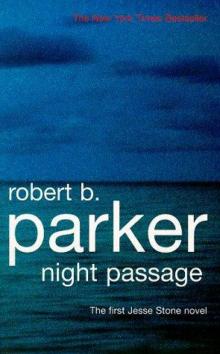 Night Passage js-1
Night Passage js-1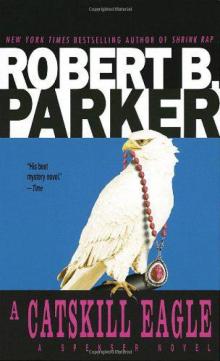 A Catskill Eagle
A Catskill Eagle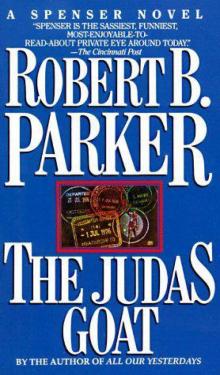 The Judas Goat
The Judas Goat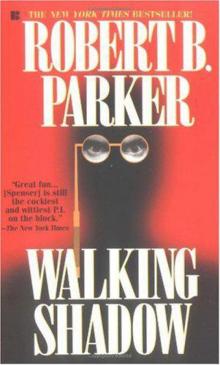 Walking Shadow
Walking Shadow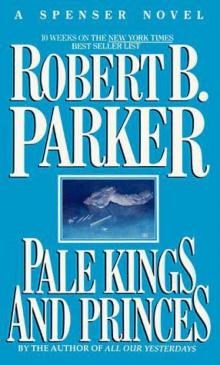 Pale Kings and Princes s-14
Pale Kings and Princes s-14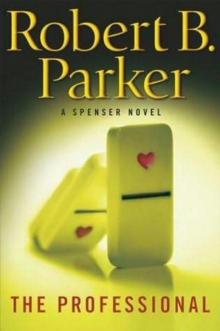 The Professional
The Professional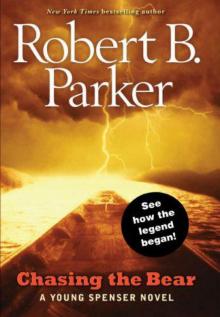 Chasing the Bear s-37
Chasing the Bear s-37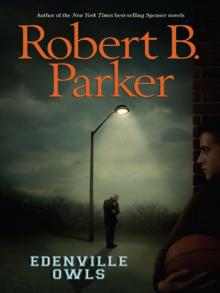 Edenville Owls
Edenville Owls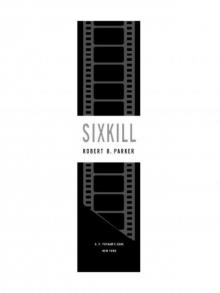 Sixkill
Sixkill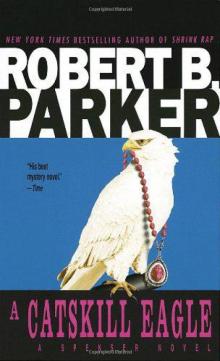 A Catskill Eagle s-12
A Catskill Eagle s-12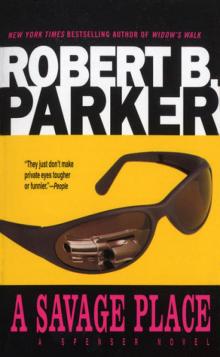 A Savage Place
A Savage Place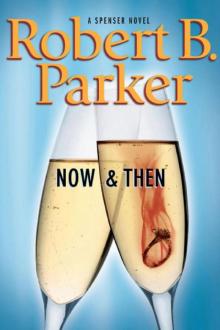 Now and Then s-35
Now and Then s-35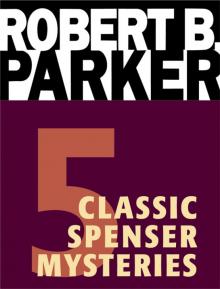 Five Classic Spenser Mysteries
Five Classic Spenser Mysteries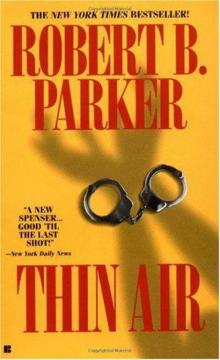 Thin Air s-22
Thin Air s-22